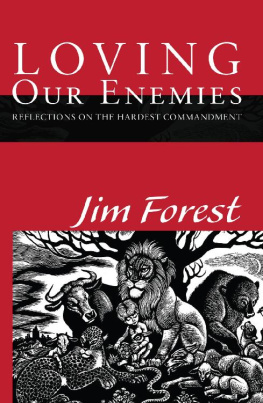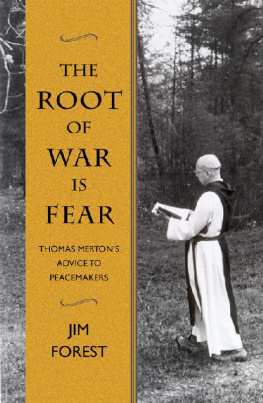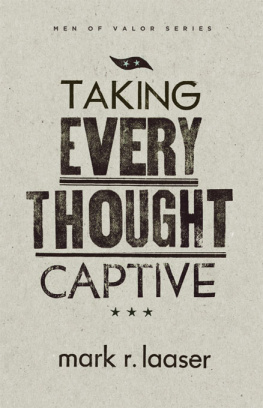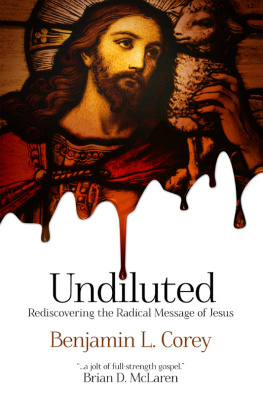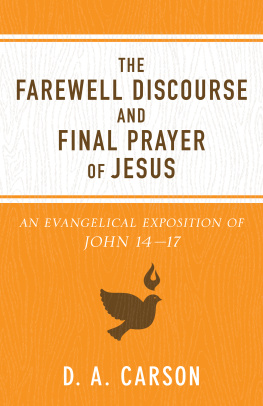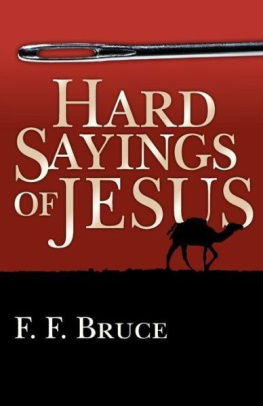
Loving Our Enemies
Christ shaping Adam, Chartres Cathedral

Loving Our Enemies R EFLECTIONS ON
THE H ARDEST C OMMANDMENT by Jim Forest


Founded in 1970, Orbis Books endeavors to publish works that enlighten the mind, nourish the spirit, and challenge the conscience. The publishing arm of the Maryknoll Fathers and Brothers, Orbis seeks to explore the global dimensions of the Christian faith and mission, to invite dialogue with diverse cultures and religious traditions, and to serve the cause of reconciliation and peace. The books published reflect the views of their authors and do not represent the official position of the Maryknoll Society. To learn more about Maryknoll and Orbis Books, please visit our website at www.maryknollsociety.org.
Copyright 2014 by Jim Forest
Published by Orbis Books, Maryknoll, New York 10545-0302.
All rights reserved.
No part of this publication may be reproduced or transmitted in any form or by any means, electronic or mechanical, including photocopying, recording or any information storage or retrieval system, without prior permission in writing from the publisher.
Queries regarding rights and permissions should be addressed to: Orbis Books, P.O. Box 302, Maryknoll, New York 10545-0302.
Manufactured in the United States of America.
Library of Congress Cataloging-in-Publication Data
Forest, Jim (James H.)
Loving our enemies : reflections on the hardest commandment / Jim Forest.
pages cm
Includes bibliographical references.
ISBN 978-1-62698-090-7 (pbk.)
1. LoveReligious aspectsChristianity. 2. EnemiesReligious
aspectsChristianity. I. Title.
BV4639.F578 2014
241'.4dc23
2014005483
To all of our grandchildren so far
Zackary
Kara
Noah
Joshua
Lux
Dylan
Sara
Julia
Far from being the pious injunction of a utopian dreamer, this command [ to love our enemies ] is an absolute necessity for the survival of our civilization. Yes, it is love that will save our world and our civilization, love even for enemies . Martin Luther King Jr.
Sermon at Dexter Avenue Baptist Church
November 17, 1957 To make peace with an enemy, one must work with that enemy, and that enemy becomes ones partner . Nelson Mandela
Long Walk to Freedom If we believe in the Incarnation of the Son of God, there should be no one on earth in whom we are not prepared to see, in mystery, the presence of Christ . Thomas Merton
New Seeds of Contemplation Contents
Introduction
N OT EVERYTHING J ESUS TAUGHT must be regarded as a commandment. Take, for example, his encounter with a wealthy young man who wanted to know what he needed to do in order to obtain eternal life. Referring to the ten basic laws given to Moses, Jesus told him not to murder, not to commit adultery, not to steal, not to give false testimony, to honor his father and mother, and to love his neighbor as himself. The young man replied that he had been following those rules throughout his life, but then asked a second question, What do I still lack? Jesus responded, If you want to be perfect, go, sell your possessions and give to the poor, and you will have treasure in heaven. Then come, follow me (Matthew 19:16-20). This was more than his questioner could bear. He went away sad, unable to embrace so radical an invitation.
It would be interesting to know what choices the young man made later in life. Perhaps he eventually became as poor as Saint Francis of Assisi. What is clear, however, is that the invitation Jesus gave him that day was not a commandment. It was what theologians sometimes have called a counsel of perfectiona teaching one may embrace but which is not a precondition for salvation for every Christian. In fact there are many saints included in the calendar of the church who had possessions and at least a few who were wealthy. Similarly, celibacy has always been a respected option for ChristiansJesus was unmarriedbut it has always been seen as an option suitable only for a small minority of Christs followers.
One cannot say that about love of enemies. Its not in the if you would be perfect category. Its basic Christianity. Jesus teaches it through direct instruction, through parables, and by the example given with his own life.
Love of enemies is not our default setting. Its a hard teaching, as hard for me as it is for anyone. Our natural inclination is to hate those who have done us harm or seem prepared to do so.
But in my own case I had a head start in practicing this hardest of commandments. Growing up in America in the 1950s, it so happened that my parents were the enemynot my personal enemy, but they were widely regarded as enemies. The reason was that they were Communists. The Cold War was at its iciest and McCarthyism at high tide. When I was celebrating my eleventh birthday, my father was in prison; it took nearly half a year for bail to be raised so that he might be free while awaiting trial. His arrest as a top Red had been coast-to-coast front-page news in 1952. Eventually, while my fathers case was pending before the Supreme Court, the charges against him were dropped; but he, my mother, and others like them remained very much on Americas enemy list throughout my childhood. The FBI not only kept close tabs on my parents but even fingerprinted my brother and me one afternoon when our mother was out of the house.
As a child I gradually became aware of my parents dissident views, though I didnt understand them. That they were out of step with society as whole did not make them unlovable. Though my parents were divorced, they never spoke ill of each other, and both were loving parents. I wasnt even aware at the time how unusual it was for a white family (my mother, brother, and I) to be living in a mainly black neighborhood. I loved my parents, not for their political and philosophical beliefs, which I knew little about and was unable to understand, but for who they were.
If only we knew our enemies not just for what we think they believe but for who they are, Jesus commandment to love them would be much easier. We might continue hating what our enemies stand for or the damage they may be causing, yet no longer hate them as persons or do anything to cause them harm.
If my mother especially provided an inspiring example, in early adulthood I was to come under the influence of another woman who gave an even more challenging witness to a life free of enmity: Dorothy Day. Following my discharge from the U.S. Navy, I became part of the Catholic Worker community in New York City, led by Dorothy, and there discovered a person who not only refused to hate enemies but related to them in a way that could only be described as loving. Her life centered on hospitality. The writing of this small book draws deeply on what I learnedat least began to learnin her company.
Dorothy Day

I am fortunate too that, thanks to Dorothy, I developed a deep relationship with the writer and Trappist monk Thomas Merton, another person who hated no one. In one of his letters to me he stressed the importance of seeing people, including adversaries, simply as fellow human beings. One of the most important things to do is to keep cutting deliberately through political lines and barriers, he advised me in one letter, and emphasizing that these are largely fabrications and that there is a genuine reality, totally opposed to the fictions of politics: the human dimension.
Next page
